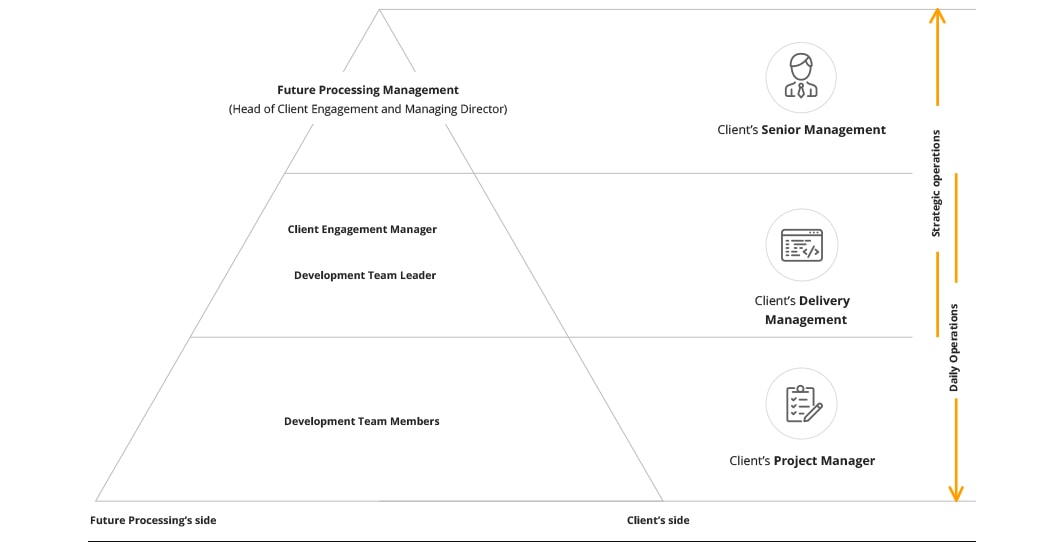
Why do IT Project fail and how to prevent this from happening?
Delivering and carrying out IT projects is no walk in the park. Even though companies today are now much better equipped with knowledge, awareness and tools than they were just a couple of years ago, successfully bringing any project to fulfillment still finds many barriers.
When is an IT project considered a failure?
When things don’t go according to the plan, we talk about a failure.
But what exactly do we mean by it?
An IT project is considered a failure when it does not meet its objectives, when it experiences significant delays, exceeds budget constraints, or fails to deliver the expected value to stakeholders.
Project failure can be subjective and may vary depending on the specific circumstances and criteria established at the project’s outset.
What is the failure rate of IT projects?
According to PMI’s survey Pulse of the Profession conducted among organisations across the world over a span of 12 months:
15% of all initiated projects were deemed failures,
31% of completed projects didn’t meet the original goals and business intent,
43% of completed projects exceeded their initial budgets.
The reasons behind these situations may be both external and internal.
External reasons are usually dependent on the ever-changing environment and they can affect some or all of the organisation’s priorities. This, in turn, forces project objectives to change and adapt.
Internal reasons on the other hand, are mostly associated with poor project management – and this will be the main focus of this article, as project management is definitely something that is well within a company’s reach, especially in terms of preventing a project from failing.
6 management-related causes of IT Project failure
Various surveys, researches and analyses of the reasons of IT project failures will all produce slightly different outcomes, but they will also share some common ground.
We can easily identify six of the most common causes of IT project failure.
1. Poor communication and collaboration
Good collaboration and leadership are not possible without good communication.
And the latter is very often fragmented, ineffective, taking place in a number of different places: via email, on the phone, in company chats, and in person. It may become chaotic, the procedures may be either unclear or nonexistent, and not all interested persons are always included in the conversations.
As a result, the entire project delivery is hindered and lacks effectiveness and clarity regarding project goals and requirements.
Here you can read more about the importance of communication in team building and project management:
2. Inaccurate gathering of requirements
Did you know that correcting errors and bugs in a launched project can consume up to 200 times more money than it would have if these were fixed before launching it in the first place?
Without a thoroughly run phase to gather all initial requirements it’s almost impossible to adequately define the scope of work for a project, estimate essential resources or even prepare a preliminary road map.
This causes a lot of reworking, blown budgets, and wasted time and frustration, which all leads directly to failure.
3. Unidentified risks
It’s not only opportunities that count. Before starting any project, you also need to identify as many risks as possible, measure them, and then keep a close eye on them throughout project development.
Oftentimes, it’s not about how big the risk is, but what you know about it so that you are totally aware of what’s at stake and what price you may have to pay. The most dangerous threat to success is always unknown and, therefore, unpredictable.
Smart risk management (or comprehensive roadmap for product development) is the fundamental part of the successful project.
4. Poor management of changes and lack of flexibility
Change is actually not a bad thing; in fact, it’s a vital and inevitable part of any project.
It’s only a matter of how you handle it and how much flexibility you can respond with whenever a shift occurs. This may pertain to basically anything: project requirements, current priorities, goals…
Poor change management conducted by inexperienced project managers can cast a shadow on one’s ability to effectively run a project, causing work to halt and come to a sudden standstill.
5. Lack of clear procedures and automation
Having clear procedures in place can save loads of time in IT project development.
Unfortunately, it’s not that common and team members often end up wasting their precious time trying to reinvent the wheel and thinking about how to solve problems that have already been solved.
Plus, when the simplest (though often time-consuming) recurring processes are not automated, this may delay the project further and even push it to the point of failure, as it significantly undermines project’s success.
6. Poor project management leadership and unrealistic expectations
This is a mindset-related problem which usually comes from a lack of knowledge, overinflated ego, and poor soft skills.
Poor leadership combined with unrealistic expectations from a project manager, investors or stakeholders can lead straight to a disaster – and often sooner rather than later – as these are characteristics that leave little to no room for data-based actions and reasonable interpersonal cooperation.
A lack of clear direction, vision, and decision-making can create confusion among project team members. Strong leadership is essential for guiding the project team, resolving conflicts, keeping the project on track and avoiding future project failures.
How to prevent your IT Projects from failing?
There’s one thing that has to be stated outright: there’s simply no such thing as a 100% surefire way to keep failure away. Your future success depends on too many factors you just don’t have any control over, like economic trends, big industry changes, cutting-edge technology in software development or moves that your competitors make.
However, you can increase your chances of success by simply:
incorporating an adequate and consistent project management methodology (we believe in operational agility, but there are also many other approaches, for example, the waterfall approach – each method has its own pros and cons);
hiring trained and experienced project managers with proactive approaches. These professionals are able to handle stakeholder requirements, manage project goals or complex tasks, set priorities and make the most of the team that they work with;
leveraging data analyses and progress tracking tools, which will help you stay open-minded and focus on continuous improvement.
You either have to adopt this general mindset from within your company or cooperate with an experienced IT partner who has a profound understanding of the importance of good project management techniques.

This way, you can flawlessly move through every stage: from gathering project requirements and initial planning to product development and deployment.
How to save a failing IT Project?
Although it’s not easy, saving a failing IT project is possible. It requires a strategic and systematic approach to address underlying issues, re-align project goals, and regain control.
When you attempt to rescue a failing IT project consider conducting a project assessment, engaging stakeholders, realigning projects goals and objectives, developing a recovery plan and implementing agile project management.
Successfully rescuing a failing IT project requires commitment, collaboration, and a willingness to make necessary changes. Flexibility and adaptability are key attributes during the recovery process.
In some cases it may be beneficial to seek external expertise, such as project recovery specialists.
Seeking to avoid project failure? Future Processing is your solution!
Despite the fact that project management has been widely analysed and described in detail for many years, 42% of organisations still don’t fully understand its value.
In order to lower the failure rate of IT projects, this figure must be lowered. Especially since 52% of projects cost 189% of their original budget estimations or more, which is strongly correlated with poor management.
This economic argument should also be the most persuasive one, as project failure inherently describes a financial flop, not to mention all the wasted time, energy and motivation for all parties involved. Ultimately, smart project management is the key to increasing your chances of success.
Keen to enhance your project management and avoid project failure? Get in touch with our team of experts.
At Future Processing we are highly experienced at delivering IT projects for different companies of all sizes and will be happy to look at your particular case and help you achieve your goals!



